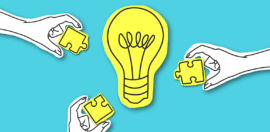Using community power to drive EV uptake

20 March 2023 at 10:35 am
A social enterprise says collaboration and community are key to increasing the number of electric vehicles on Australia’s roads.
Uptake of electric vehicles (EVs) in Australia is increasing, with the country to soon reach the milestone of 100,000 on the roads.
One social enterprise is making it its mission to help decarbonise transport and increase the number of EVs on the road.
The Good Car Company was founded by three environmental scientists, who created the world’s first community EV bulk-buy as part of a desire for stronger action on the climate crisis.
The program sees the Good Car Company partnering with community groups to buy EVs in bulk, making them more affordable and accessible for people to buy.
See more: Group buying could be key to NFP electric car uptake
Co-founder Anthony Broese van Groenou told Pro Bono News the program “switches the whole market around”.
It’s based on the solar bulk buy market that encouraged the early take up of solar in Australia, when community bulk buying power allowed people to get solar panels at a cheaper rate.
“Plenty of people have done it before. We’re the first ones in the world to do it with electric vehicles, but hopefully there’ll be lots of people doing it in the future as well,” he said.
Buyers are provided with information and support from the Good Car Company, and the vehicles imported are often not available as standard for purchase in Australia, meaning there are more options for buyers.
As part of the community bulk buy program, The Good Car Company undertakes community education programs to educate the public on the benefits of EVs.
This is a crucial part of what they do, Broese van Groenou said, because it introduces people to the concepts behind electric vehicles and creates local advocates who can then spread the word to others in their area.
“People are worried about range, about batteries degrading… charging infrastructure,” he said.
“[We hear] things like ‘every single electric car is built with child slave labour’.”
Broese van Groenou argues that while there are still parts of the EV construction supply chain that do need to be fixed, things have vastly improved, with many of the factories in which they’re made now being powered by renewables and supply chains being cleaned up. Battery recycling has advanced, and more of the electricity going into the grid that EVs charge through is coming from renewable sources.
He said that over the three or four years since The Good Car Company began operating, its founders have witnessed a shift in community attitudes towards EVs, becoming more positive.
He said “fear, uncertainty and doubt” remain some of the biggest challenges to increasing uptake of EVs.
But lived experience can dispel that, he added, once people realise how easy it is to look after an electric vehicle.
He said people also often change their minds once they calculate the fuel savings on an EV.
Environment first
Broese van Groenou said the trio of founders isn’t in it for the cars; they’re focused on the environmental impacts of internal combustion engines, and how these can be combated.
They looked into EV take up in neighbouring countries and found that New Zealand had a far higher use of EVs than Australia. They knew it was time to do something about that, and began importing second-hand EVs from Japan to sell in Australia.
These vehicles were chosen because they had higher features than other cars delivered into Australia, Broese van Groenou explained.
The Good Car Company is also looking at ways of upcycling older cars to increase their useful lifespan.
This process also buys the social enterprise time to consider how to close the loop on batteries so they aren’t contributing to another environmental problem — battery waste.
“I think that’s going to be a huge, critical part of this whole energy revolution. There are limited resources and we need to try and recapture and reuse as much as possible, and this is a great pathway for doing that,” Broese van Groenou said.
Getting policy settings right
There are some policy settings that could be changed to increase EV uptake in Australia, Broese van Groenou explained.
“One [policy option] is to try to incentivise manufacturers to prioritise supply of electric vehicles to Australia. If we had penalties for high emitting vehicles being sold into the market that they were able to offset with electric vehicles, then I’m sure we’d see a bunch of EVs released overnight that are just being withheld from the market,” he mused.
He also believes Australia should be able to import EVs from anywhere in the world, provided they meet strict safety requirements.
Shifting subsidies from internal combustion engines to EVs could also make a difference for consumers, he added, along with things like interest-free loans backed by state and federal governments.
But if policy shifts don’t happen, he warns a cohort of car owners could be locked out of the EV market.
He believes policy should approach EVs from a “social equity” angle, similar to the Good Car Company’s own community bulk-buy program.
Driving forward
The Good Car Company is also one of 11 businesses working with Australian clean-tech accelerator Energy Lab, global accelerator New Energy Nexus and Mike Cannon-Brookes’ foundation Boundless, on issues in battery manufacturing.
The Good Car Company will accelerate the options in the market for battery upgrades on vehicles and adding more functionality to electric cars.
“It’s really nice to see all the collaboration that could happen between adjacent and not-even-that-adjacent businesses. I’d love to see a really strong social enterprise sector in Australia. And doing something like this — we never thought that we’d be doing anything in the car industry. But it’s a huge trillion dollar industry here. And. If we can start to shape that somehow, then that’s a really big win.”







